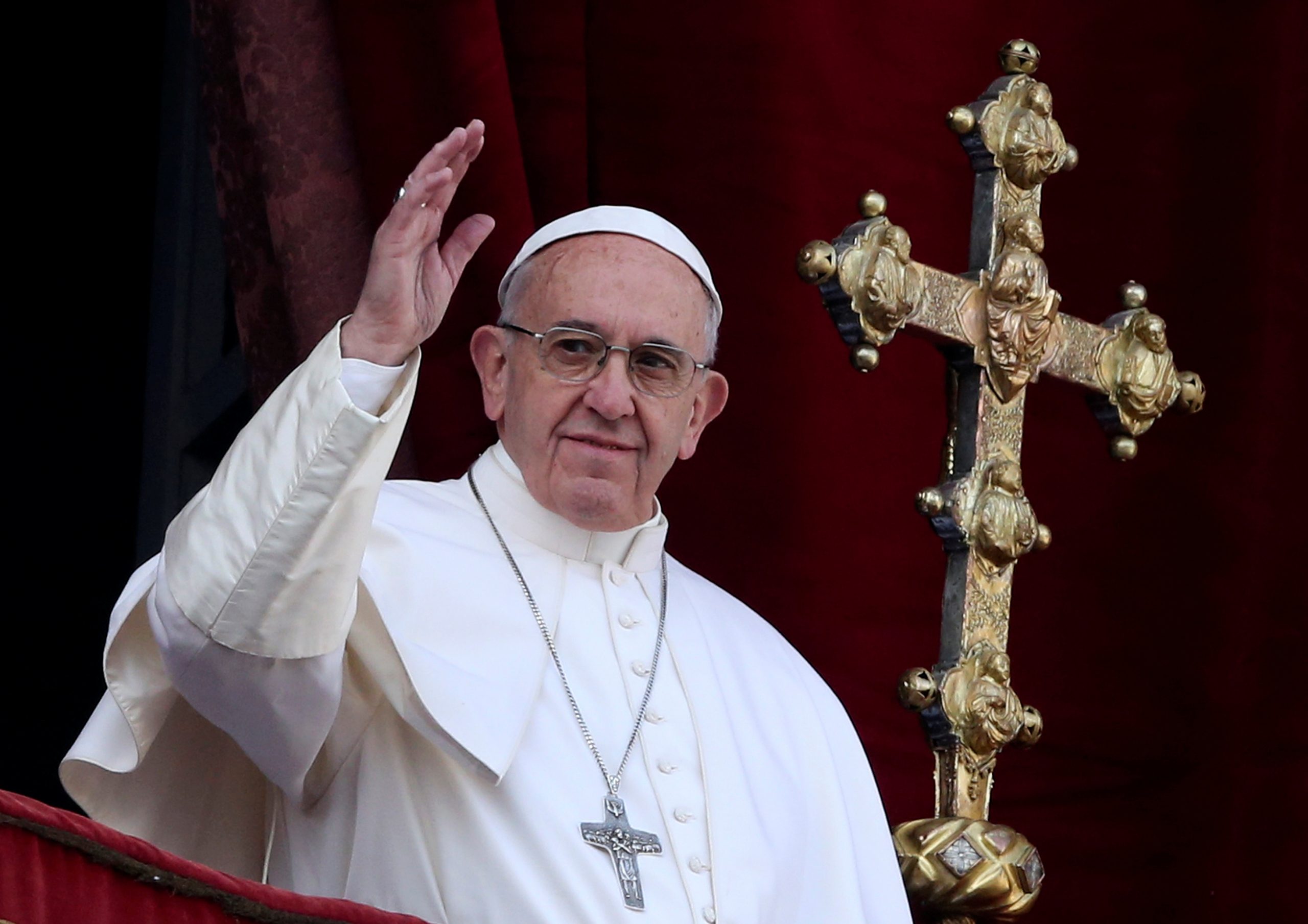Burma, Syria and the Korean peninsula were among those in Pope Francis’s thoughts as he delivered a Christmas Day message at the Vatican on Sunday.
“May Myanmar consolidate its efforts to promote peaceful coexistence and, with the assistance of the international community, provide necessary protection and humanitarian assistance to all those who gravely and urgently need it,” he said, according to a transcript of the remarks provided by Vatican Radio.
In a speech laden with acknowledgment of the strife-torn world of 2016, the pope directed his message “to the ends of the earth to reach all peoples, especially those scarred by war and harsh conflicts that seem stronger than the yearning for peace.”
He continued, “Peace to all who, in different areas, are enduring sufferings due to constant dangers and persistent injustice.”
Though vague in his reference to Burma, there is no shortage of conflict afflicting the country at the moment: Hostilities between the Tatmadaw and a group of four ethnic armed groups in northern Shan State, the recent fall of the Kachin Independence Army’s Gidon mountaintop outpost and an ongoing crackdown on Muslims in northern Arakan State in pursuit of suspected militants have dominated the headlines in Burma for weeks.
More than five years of fighting between the Tatmadaw and the majority-Christian KIA has put northern Burma on the map for many in the West, while both the pope and Rangoon-based Cardinal Charles Maung Bo have in the past spoken out in defence of Burma’s Rohingya Muslim minority, the target of the current counter-insurgency campaign in Arakan State.
“Let’s think of those brothers of ours the Rohingya,” Pope Francis said in August 2015, in reference to a refugee crisis months earlier that saw thousands of the Muslim minority wash up on the shores of fellow Southeast Asian nations. “They were chased from one country and from another and from another. When they arrived at a port or a beach, they gave them a bit of water or a bit to eat and were then chased out to the sea.”
“This is a conflict that has not resolved, and this is war, this is called violence, this is called killing,” he added.
Charles Maung Bo, who was appointed Burma’s first cardinal in 2015, said in an interview earlier this year that the plight of the Rohingya was “an appalling scar on the conscience of my country.”
“They are among the most marginalized, dehumanized and persecuted people in the world,” he said. “They are treated worse than animals. Stripped of their citizenship, rejected by neighboring countries, they are rendered stateless. No human being deserves to be treated this way.”
The administration of State Counsellor Aung San Suu Kyi has increasingly come under pressure from the international community over its handling of the crisis in Arakan State in the wake of deadly 9 October attacks on border guard posts in the state’s north, which the government has pinned on militants inspired by Islamic extremism.
[related]
The ensuing manhunt for the perpetrators has killed scores of Muslims and seen more than 500 people detained. Access has been denied to tens of thousands who had been receiving humanitarian aid, while state media has sought to portray an increasingly normalised situation, with the Global New Light of Myanmar reporting on Monday that 12 villages in northern Arakan State had received 250 bags of rice on Saturday.
Human rights groups have decried the Arakan State crackdown. Suu Kyi has maintained that security forces are abiding by the “principles of the rule of law.”



